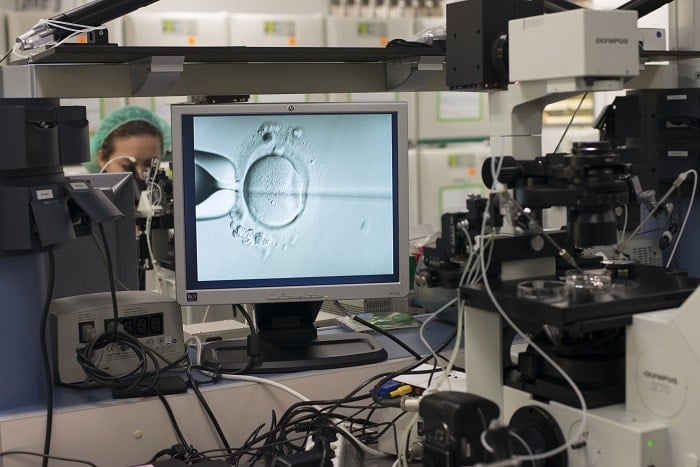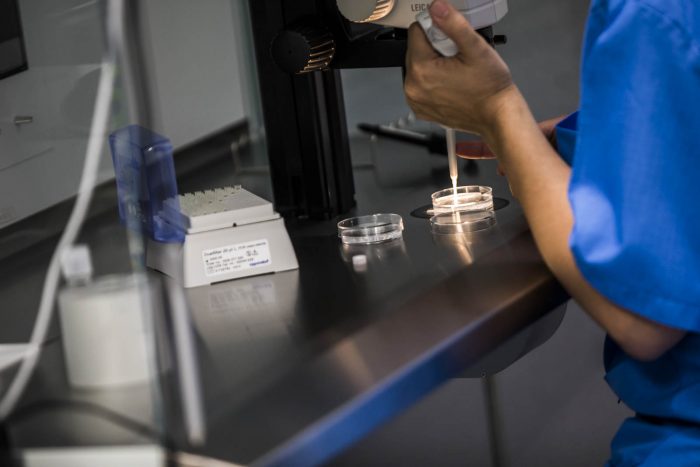

Intracytoplasmic Sperm Injection (ICSI) is recommended in cases of male infertility, thus enabling fertilization. This procedure consists of extracting a spermatozoon from a sample of semen or by testicular biopsy to select the most appropriate sperm.


Naturally, the ejaculated sperm swim through the uterus into the fallopian tubes, one of which will contain the egg ovulated that month. One of the sperm will pass through the different layers that protect the egg to fertilize it, and thus produce the zygote, which ends up forming the embryo.
Intracytoplasmic sperm injection, better known as ICSI, is an assisted reproduction technique that involves the direct insertion of a sperm into the ovule to facilitate fertilization.
RESULTS
90% of patients who undergo an assisted reproduction treatment at IVI become pregnant.
CARE
97% of our patients recommend IVI.
IVI provides personalised care and support during all stages of treatment.
TECHNOLOGY
IVI is a pioneer in the latest assisted reproduction technology in order to present the best results.
PRICE-QUALITY
We are not the most expensive choice. We offer the most treatment options in order to achieve the best results.


The ICSI technique allows the direct union of the egg and a sperm –selected by our embryologists–, thus facilitating fertilization. A sperm that has low motility or poor morphology would have greater difficulty achieving this naturally or through the classic IVF technique.
To perform the ICSI it is necessary to perform controlled ovarian stimulation on the patient or the donor (in the event donated eggs are used), in order to obtain a good number of eggs through follicular puncture.
In turn, the semen sample is obtained (or thawed if donor semen is used) and it is prepared. The preparation consists of processing the sample to obtain a fraction with the best sperm and also to activate its fertilizing capacity.
Once we have both gametes, the embryologist proceeds to perform the ICSI. To do this, the samples are placed on a culture plate and, using a microscope and micromanipulators, a sperm is selected, immobilized and inserted inside the egg using a pipette. This procedure is repeated with each of the mature eggs obtained. This way, we maximize fertilization.
The next day, the embryologist evaluates the microinjected eggs to see which of them have fertilized correctly (called zygotes). The zygotes are kept in culture and produce embryos, which are evaluated every day until their development is complete. At that time, the best embryos are selected: one is transferred to the mother’s womb and the rest are vitrified for possible later use.